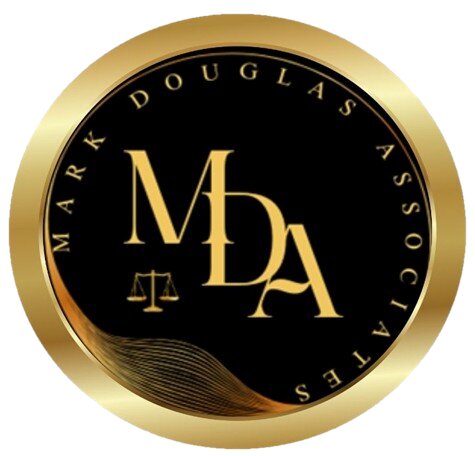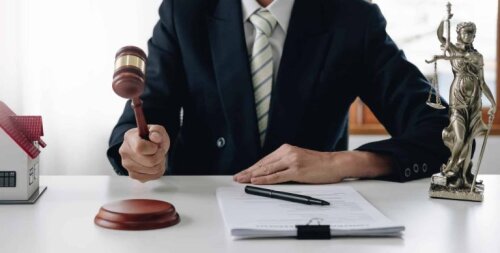Best Patent Lawyers in Jamaica
Share your needs with us, get contacted by law firms.
Free. Takes 2 min.
Or refine your search by selecting a city:
List of the best lawyers in Jamaica
About Patent Law in Jamaica
Patent law in Jamaica is designed to protect the rights of inventors by granting them exclusive rights to their inventions for a limited time. This legal framework encourages innovation and investment in new ideas by ensuring that inventors can benefit from their work. The Jamaica Intellectual Property Office (JIPO) is the governing body that oversees all activities related to patents in Jamaica.
Why You May Need a Lawyer
There are several situations where individuals or businesses may need legal assistance with patents in Jamaica. These include:
- Filing a patent application: Navigating the complexities of patent applications can be challenging, and a lawyer can help ensure that all necessary information is included and that the application is correctly filed.
- Patent infringement issues: If you believe your patent rights have been infringed upon, or if you're accused of infringing on someone else's patent, a lawyer can represent your interests.
- License agreements: Lawyers can assist with drafting or reviewing licenses to ensure your interests are protected in any agreement involving your patent.
- Patent portfolio management: For businesses with multiple patents, a lawyer can help manage and strategize the use of the entire portfolio to maximize its value.
- Challenging the validity of a patent: If you need to contest a patent that you believe should not have been granted, legal expertise is essential.
Local Laws Overview
The Patent Act governs patent laws in Jamaica. Key aspects include:
- Protection period: Patents are typically granted for 20 years, and renewals must be filed annually.
- Patentability: To be patentable, an invention must be new, involve an inventive step, and be capable of industrial application.
- Patent Process: The application must include a detailed description, claims defining the invention, and any necessary drawings.
- Enforcement: Patent holders have the right to exclude others from producing, using, or selling the patented invention without permission.
Frequently Asked Questions
What constitutes a patentable invention in Jamaica?
In Jamaica, a patentable invention must be new, involve an inventive step, and be industrially applicable.
How long does patent protection last in Jamaica?
A patent in Jamaica typically lasts for 20 years from the filing date, subject to annual renewals.
Can I apply for a patent in Jamaica if I've already disclosed my invention elsewhere?
Prior public disclosure can jeopardize the novelty of an invention. It's advisable to file for a patent before disclosing any details.
How can I enforce my patent rights in Jamaica?
If your patent is infringed, you can take legal action against the infringer for damages or an injunction to stop further infringements.
Are software and business methods patentable in Jamaica?
Software and business methods are generally not patentable unless they meet specific criteria demonstrating a technical effect or solution.
What is the role of the Jamaica Intellectual Property Office (JIPO)?
JIPO is the organization responsible for the registration and administration of patents and provides guidance on intellectual property issues.
Can I apply for an international patent from Jamaica?
While you can't apply for an "international patent," you can file under treaties like the Patent Cooperation Treaty (PCT) to seek protection in multiple countries.
What is the process for opposing a patent in Jamaica?
Third parties can file opposition proceedings against a patent application within a stipulated timeframe before it's granted.
How can I maintain my patent in Jamaica?
You must pay annual renewal fees to keep your patent in force throughout its 20-year term.
Can a patent be modified after it's been granted?
Post-grant modifications are limited but can include corrections for clerical errors or updated information on ownership.
Additional Resources
For more information on patents in Jamaica, consider contacting the following organizations:
- Jamaica Intellectual Property Office (JIPO): Provides comprehensive resources and support for patent applications and issues.
- Jamaica Chamber of Commerce: Offers resources and guidance for businesses navigating intellectual property matters.
- Local law firms specializing in intellectual property: They can offer consultations and assist with specific legal issues.
Next Steps
If you require legal assistance relating to patents in Jamaica, consider the following actions:
- Research and contact qualified patent attorneys or law firms with expertise in intellectual property.
- Prepare documentation and details of your invention for consultation.
- Check resources offered by JIPO to understand the application process better.
- Consider joining local business or inventor networks to connect with peers for advice and support.
Lawzana helps you find the best lawyers and law firms in Jamaica through a curated and pre-screened list of qualified legal professionals. Our platform offers rankings and detailed profiles of attorneys and law firms, allowing you to compare based on practice areas, including Patent, experience, and client feedback.
Each profile includes a description of the firm's areas of practice, client reviews, team members and partners, year of establishment, spoken languages, office locations, contact information, social media presence, and any published articles or resources. Most firms on our platform speak English and are experienced in both local and international legal matters.
Get a quote from top-rated law firms in Jamaica — quickly, securely, and without unnecessary hassle.
Disclaimer:
The information provided on this page is for general informational purposes only and does not constitute legal advice. While we strive to ensure the accuracy and relevance of the content, legal information may change over time, and interpretations of the law can vary. You should always consult with a qualified legal professional for advice specific to your situation.
We disclaim all liability for actions taken or not taken based on the content of this page. If you believe any information is incorrect or outdated, please contact us, and we will review and update it where appropriate.
Browse patent law firms by city in Jamaica
Refine your search by selecting a city.















